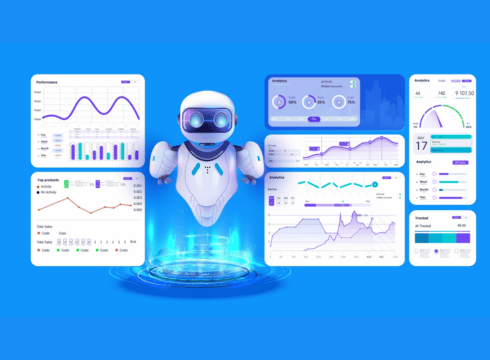India’s low insurance penetration can certainly be accredited to hefty premiums and mismanagement in the claims settlement process
The development of Health Insurance 2.0 is only possible with the power of AI and data-driven insurance procedures
This technology eliminates paperwork and complex procedures which in turn improves efficiency and customer satisfaction
Inc42 Daily Brief
Stay Ahead With Daily News & Analysis on India’s Tech & Startup Economy
Healthcare is one of the major contributors to India’s economic growth and has been rising at a steady pace with an influx of capital, better services, and technological innovations. However, the same cannot be said about the health insurance ecosystem as it continues to face market volatility, complexities, and ambiguity.
Given the sector’s decentralised approach, the insurance penetration stands at a staggering low with nearly 400 Mn people failing to access health insurance.
Against this backdrop, the health insurance industry has been reinventing itself by moving the needle on technological advancements. By seeking a different approach to survive and thrive in this evolving world, the insurance sector is actively harnessing AI algorithms and is shifting the focus to a data-driven insurance underwriting process.
The digitisation of health insurance is also being driven by government initiatives like Ayushman Bharat Health Account which is bringing uniformity to the overall process.
The development of Health Insurance 2.0 is only possible with the power of AI and data-driven insurance procedures.
Easy Customer Onboarding With An Emphasis On Advanced Data Collection
Insurance sector has long followed conventional models which involved mostly manual processes. The pre-medical check-up which serves as the basis for insurance eligibility is no longer paper-based as modern health monitoring platforms help insurers onboard customers with a quick facial scan.
This technology eliminates paperwork and complex procedures which in turn improves efficiency and customer satisfaction.
The previous insurance model had major setbacks in the data-first insurance landscape, which led to the emergence of AI-based facial scanners. These face scanners are capable of capturing vital health parameters like heart rate, BMI, diabetes, and others which provide insurers with detailed insights into an individual’s health profile.
With the assessment of these vitals, one can seek out potential health risks which will enable insurers to make informed decisions about coverage, overall well-being and risk management strategies.
Improved Customer Experience Backed By Cost Effectiveness
The insurance industry has always been committed to enhancing the policyholder experience at each touchpoint. Amidst this profound revolution, health insurers leverage data-driven insights to offer a superior customer experience.
In tandem, policyholders can benefit from customised insurance plans, proactive health management support, transparent pricing based on their actual health risks, and personalised recommendations for improving their well-being.
India’s low insurance penetration can certainly be accredited to hefty premiums and mismanagement in the claims settlement process. Having understood the insurance industry’s primary concerns, platforms that stand at the intersection of fintech and healtech are actively combining the two by helping insurers reduce claims via preventive measures and right risk assessment.
With early identification of high-risk individuals, insurers can implement targeted intervention, thereby reducing claims costs, improving profitability, and offering cost-effective premiums to attract more customers.
Risk Profiling And Personalised Underwriting
From an insurer’s point of view, one has to go beyond traditional risk assessment methods. By analysing collected data, insurance providers can create comprehensive risk profiles for each individual, whilst keeping in mind factors like lifestyle, genetic predispositions and current health status. This in-depth profiling helps insurers accurately assess the level of risk associated with each policyholder.
It has become possible to redesign the credit underwriting process by using AI algorithms to offer personalised underwriting based on the individual’s unique health profile. Turning a new leaf over the previous paper-based process, this personalised approach ensures fair pricing. Simultaneously, the coverage is also tailored to the specific needs and risks of each policyholder, enhancing customer satisfaction and loyalty.
Predictive Analytics Promoting Preventive Care
Through the widespread adoption of machine learning capabilities, individuals are more than prepared to face potential health risks that might pose significant threats in the future. By analysing historical data and patterns, one can forecast the likelihood of specific medical conditions and take preventive measures accordingly.
In fact, by identifying potential health risks early on, insurers can incentivise policyholders to adopt healthier lifestyles, participate in wellness programs, and undergo regular health screenings.
This proactive approach to promote preventive care will be instrumental in improving overall health outcomes, whilst enabling insurers to anticipate future claims and make adjustments accordingly.
Closing Thoughts
The move to achieve IRDAIs vision “Insurance for All” by 2047 starts by integrating technological innovations, primarily AI, data-driven solutions, and predictive analytics in a predominantly manual insurance model.
With a cohesive blend of strategies and cross-functional collaboration between diverse players, the health insurance sector can pivot towards a more inclusive model, ensuring each household in the country is protected against unforeseen health complications.
{{#name}}{{name}}{{/name}}{{^name}}-{{/name}}
{{#description}}{{description}}...{{/description}}{{^description}}-{{/description}}
Note: We at Inc42 take our ethics very seriously. More information about it can be found here.


